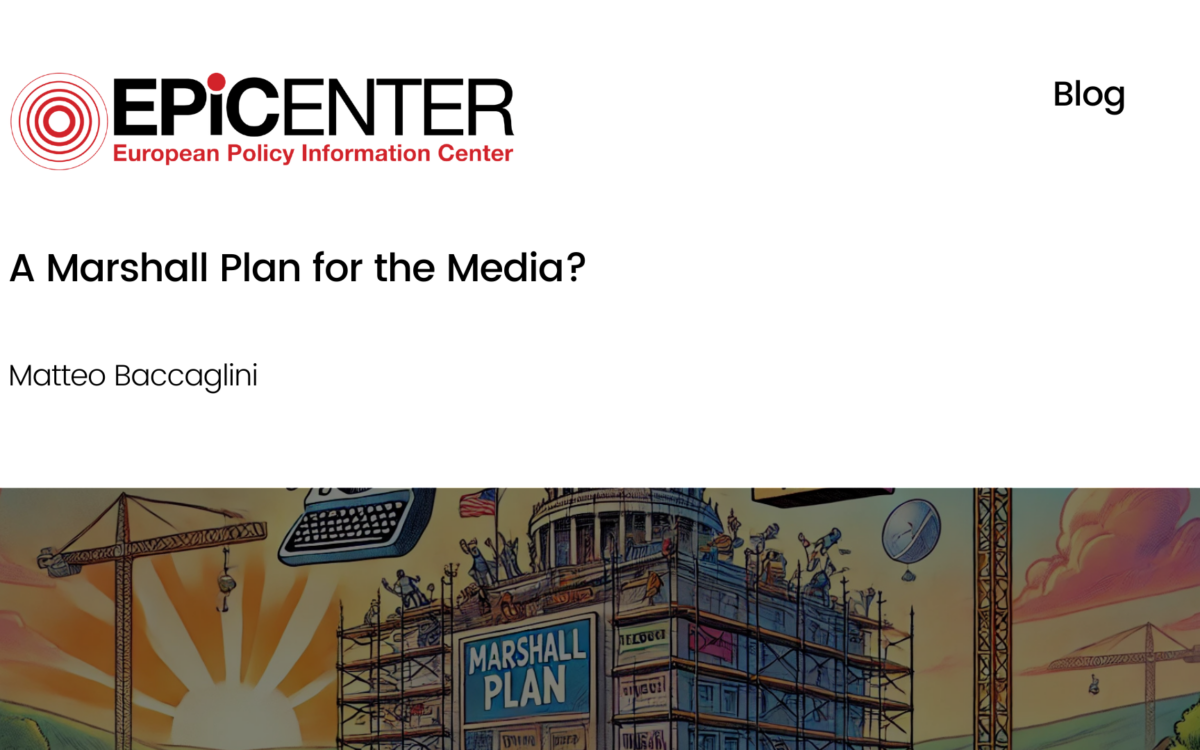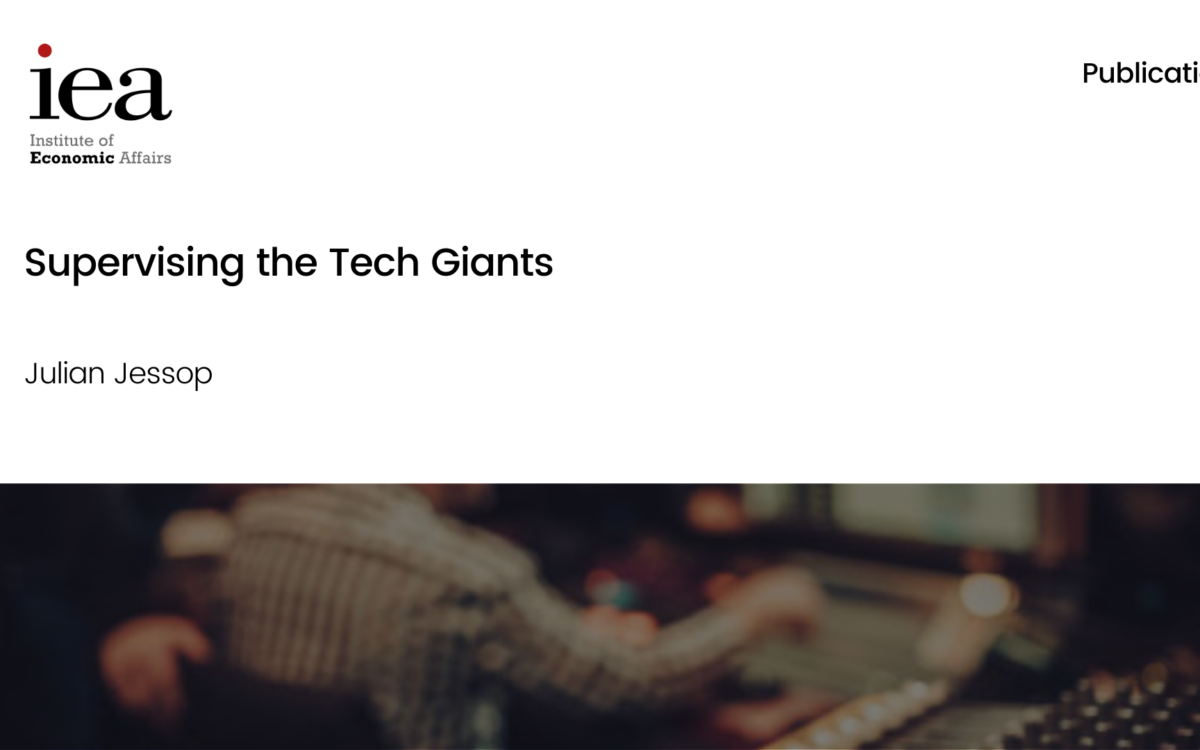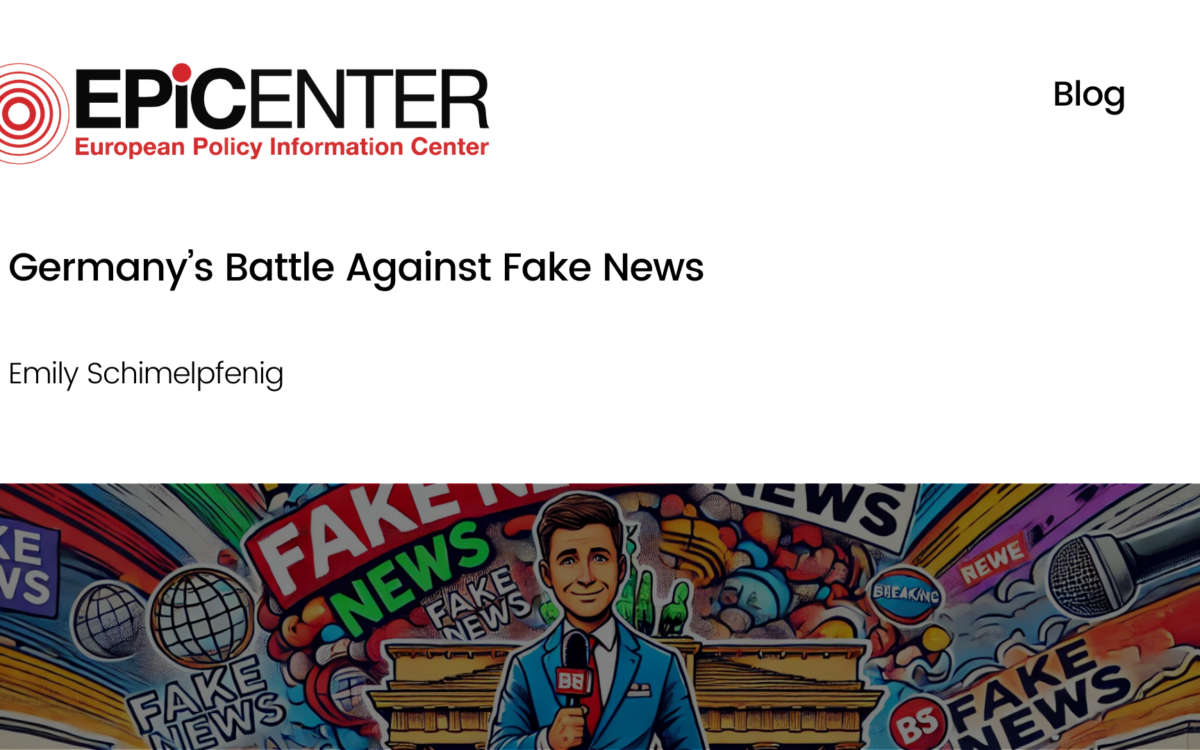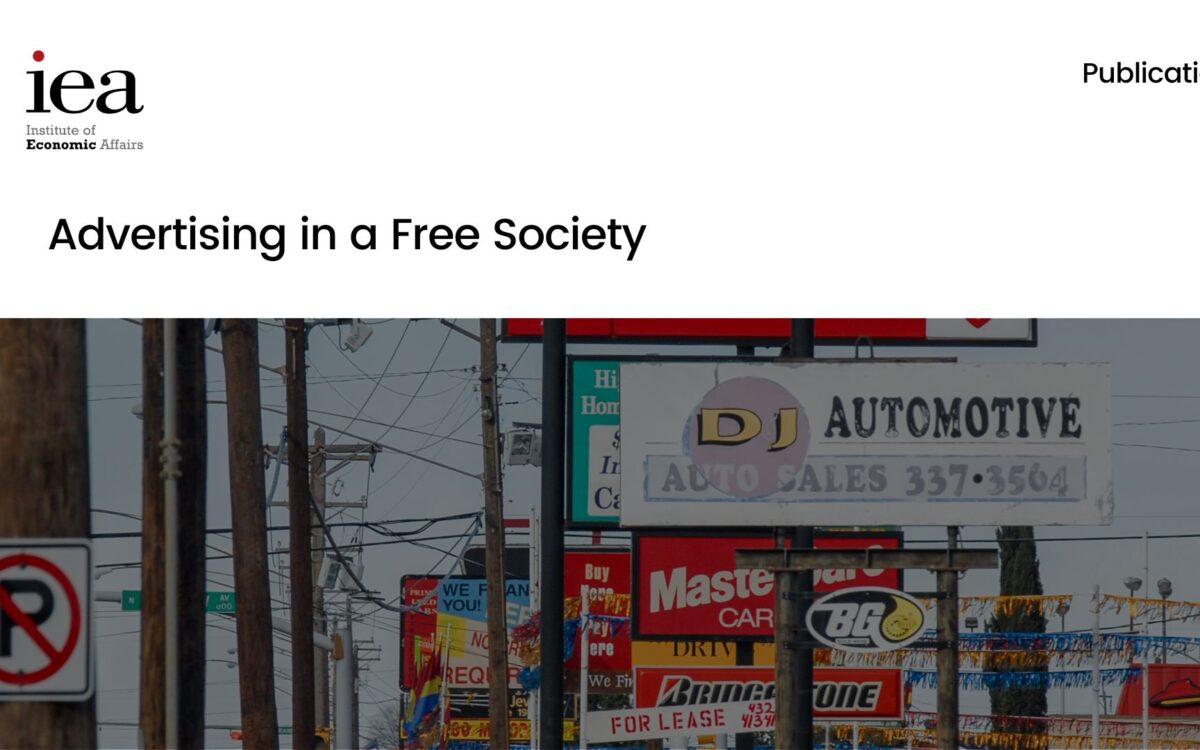July 29, 2019
- Filter by
- Categories
- Tags
- Authors
- Show all
- All
- Agriculture Publications
- Blog
- Briefings
- Digital Briefings
- Digital Publications
- Energy & Environment Briefings
- Energy & Environment Publications
- Finance Briefings
- Finance Publications
- Fiscal & Taxation Briefings
- Fiscal & Taxation Publications
- Foreign Policy Briefings
- Foreign Policy Publications
- Health & Lifestyle Briefings
- Health & Lifestyle Publications
- Media
- Publications
- Regulation Briefings
- Regulation Publications
- Rule of Law Briefings
- Rule of Law Publications
- Trade Briefings
- Trade Publications
- All
- 28th Regime
- 5G
- accession
- addiction
- advertising
- advertising bans
- advocacy
- Affordable Energy
- Afghanistan
- Africa
- ageing population
- agreements
- agriculture
- AI
- AI Act
- AI Act adjustments
- aid
- Airbnb tax
- alcohol
- alcohol policy
- alcohol taxation
- alcohol taxes
- alt-right
- america
- Anders Åslund
- annual revenue
- anti-democratic
- antitrust
- Apple
- argentina
- arms industry
- arti
- artificial intelligence
- Artificial Intelligence Act
- association agreement
- asylum
- austerity
- australasian
- australia
- authoritarian
- authoritarian populism
- authoritarianism
- automobiles
- aviation
- bailouts
- Balkans
- baltics
- bank
- bank system
- banking
- banking systems
- bans
- barriers
- barriers to trade
- behavioral economics
- behaviour
- better regulation
- Big Data
- Big Pharma
- big tech
- billionaires
- biodiversity
- biomass
- bitcoin
- Black Friday
- black market
- Black Sea gas
- blockchain
- bonds
- book review
- borders
- breton
- brexit
- British economy
- Brussels Effect
- budget
- budget deficit
- budget deficits
- budget surplus Denmark
- Bulgaria
- Bulgaria military budget
- Bundesbank
- bureaucracy
- bureaucracy index
- Bureaucracy Reduction
- Bureaucratic Reform
- business
- business environment
- Business Regulation
- business regulations
- business-friendly countries
- CAP
- CAP budget
- cap subsidies
- capital markets
- capitalism
- capitalization
- Carbon Border Adjustment Mechanism
- carbon border tax
- carbon capture
- carbon leakage
- carbon pricing
- carbon reduction strategy
- carbon tax
- cash
- cash flows
- catalonia
- CBAM
- cbcd
- CDU/CSU
- CEE
- Central and Eastern Europe
- central bank
- Central Bank Credibility
- central bank digital currency
- Central Bank Independence
- Central Banking
- centralisation
- CEPOS
- CER
- CETA
- chargers
- Charles de Gaulle
- china
- cigarette smuggling
- CIT
- classical liberal international relations
- classical liberalism
- clean energy
- Clean Industrial Deal
- climate
- climate anxiety
- climate change
- climate crisis
- climate economics
- climate policy
- climate policy reform
- Co-operation
- CO2
- coalition
- cohesion policy
- Cold War
- commerce
- Commission
- commission fees
- common agricultural policy
- common market
- Comparative Advantage
- competition
- competition law
- Competition policy
- competitiveness
- competitiveness index
- compliance costs
- compliance spillovers
- constitution
- consultation processes
- Consumer Benefits
- consumer freedom
- consumer rights
- consumers
- consumption
- cooperation
- copyright
- coronavirus
- corporate law
- corporate tax
- corporation tax
- corporations
- corruption in defense
- cost of living
- cost of living crisis
- costs
- COVID
- COVID-19
- credit
- crises
- crisis
- Croatia
- crops
- crypto
- cryptocurrency
- culture
- culture wars
- currency
- Currency Reserves
- customers
- customs union
- cyber security
- cybersecurity
- cybersecurity reporting
- cyprus
- Czech Republic
- Danish defence spending
- Danish economy
- Danish EU presidency
- Dark Patterns
- data
- Data Act
- Data privacy
- data protection
- debt
- debt and cohesion
- debt redistribution
- decarbonisation
- decentralisation
- decentralized finance
- decolonisation
- defence
- defence financing
- defence investment
- defence policy
- defence spending
- defense escape clause
- defense investment
- defense modernization
- defense sector reform
- deflation
- democracy
- democratic peace theory
- demographic crisis
- denmark
- Denmark economy
- Denmark EU Presidency
- dependency
- dependency trap
- deregulation
- deregulation Regulatory Laffer Curve Regulatory Impact Assessments
- development
- dictatorship
- diet
- Digital
- Digital Code
- Digital Economy
- digital euro
- Digital Fairness Act
- Digital Gold
- digital marekts
- digital markets
- digital markets act
- Digital Omnibus Package
- digital platforms
- digital regulation
- digital revolution
- digital sector
- Digital Services Act
- Digital Sovereignty
- Digital Taxation
- digitalisation
- Directives
- director
- discrimination
- DMA
- dollar
- dollarisation
- domestic
- donald trump
- Donald Trump tariffs
- DORA
- Draghi report
- driverless cars
- drug innovation
- drug prices
- drugs
- e-cigarettes
- Eastern Europe
- ECB
- ecj
- economic analysis
- Economic Challenges
- Economic Competitiveness
- economic crises
- economic crisis
- economic decline
- economic diplomacy
- economic freedom
- economic growth
- economic integration
- economic migrants
- economic performance
- economic policy
- economic reform
- Economic Reforms
- economic security
- economic stagnation
- economic theory
- economics
- economy
- education
- egovernance
- elections
- electric cars
- Electricity Market Integration
- electricity prices
- elon musk
- emergency
- emissions
- emissions trading
- Emissions Trading System
- employment
- employment flexibility
- employment protection
- energy
- energy competition
- Energy Competitiveness
- energy crisis
- energy imports
- energy market
- Energy Market Reform
- energy markets
- energy policy
- Energy Prices
- energy security
- energy taxation
- energy transition
- Energy Union
- energy-environment
- enlargement
- enterprise
- entrepreneurship
- environment
- environmental
- environmental policy
- environmental regulation
- EP
- epicenter
- EPICENTER research
- epicenter. hayek
- ePrivacy Directive
- equality
- equity market
- ESG
- Estonia
- ethics
- ETS reform
- EU
- EU agriculture policy
- EU banking
- Eu budget
- EU centralisation
- EU climate policy
- EU climate targets
- EU Commission
- EU Competitiveness
- EU Consumer Protection
- EU data protection
- EU debt
- EU debt crisis
- EU defense spending
- EU deficit rules
- EU digital
- EU Digital Omnibus
- EU digital regulation
- EU digitalisation
- EU directives
- EU Economic Growth
- EU economic stability
- EU economy
- EU elections
- EU energy
- EU energy policy
- EU environmental policy
- EU finance
- EU finance policy
- EU fiscal policy
- EU fiscal rules
- EU fishing
- EU foreign policy
- EU governance
- EU growth
- EU industry
- EU integration
- EU joint debt
- EU labour
- EU lawmaking
- EU market
- EU membership
- EU migration
- EU monetary policy
- EU policy
- EU politics
- EU refugees
- EU regulation
- EU relations
- EU sanctions
- EU single market
- eu tax
- EU tax policy
- EU tech
- EU tech policy
- EU trade
- EU trade policy
- EU workers
- EU-Africa
- eu-asia
- EU-Australia
- eu-china
- EU-india
- eu-japan
- EU-Mercosur
- EU-Mercosur Deal
- EU-Russia
- EU-UK
- EU-US trade relations
- EU-USA
- eu27
- Eurasia
- euro
- euro adoption
- europe
- Europe alcohol regulation
- Europe rankings
- European capital markets
- European Central Bank
- European Chips Act
- European Commission
- European Commission 2024
- European Commission debt limits
- European competitiveness
- European Council
- european court
- European defence
- European economy
- European fiscal policy
- European healthcare
- European industrial policy
- European industry
- European Innovation Gap
- European Parliament
- European Payments
- European pensions
- European security
- european single market
- European Union
- European Union reform
- European Union trade policy
- euroscepticism
- Eurozone
- eurozone crisis
- eurozone rules
- EV
- evidence
- evidence based policy
- evidence-based
- evidence-based policymaking
- exchange
- exchange rate
- excise duties
- expenditure
- export restrictions
- extractive institutions
- extremism
- fake news
- far left
- far right
- farmer strikes
- farming
- fascism
- FDI
- Federal Reserve
- Finance
- finance policy
- financial centre
- financial crises
- Financial Crisis
- financial growth
- Financial Inclusion
- Financial Innovation
- financial markets
- financial regulation
- financial sanctions
- financial stability
- Fintech
- fiscal
- fiscal challenges
- fiscal conservatism
- fiscal crisis
- fiscal discipline
- fiscal drag
- fiscal flexibility
- fiscal policy
- Fiscal Reform
- fiscal responsibility
- fiscal sustainability
- Fiscal Union
- fiscal-tax
- fiscal-taxation
- fishery policy
- flat-rate tax
- food
- food restrictions
- foreign
- foreign-policy
- fracking
- France
- France DST
- France economic policy
- France policy
- Frédéric Bastiat
- free market
- free market reform
- free markets
- free movement
- free speech
- free trade
- Free Trade Agreements
- free-riding
- freedom
- freedom of movement
- French economy
- french pensions
- French public debt
- Friedrich Merz
- frugal four
- FTX
- future
- G7
- GAFAM Tax
- Gatekeepers
- GCC
- GDP
- GDPR
- GDPR simplification
- gender
- gender equality
- gender pay gap
- general election
- generational
- geopolitical strategy
- geopolitics
- German debt brake
- German Economy
- German fiscal policy
- Germany
- Germany defense policy
- gig economy
- Giorgetti
- global
- global challenges
- global corporation tax
- global drug pricing
- Global Economy
- global freedom
- global south
- global trade order
- global warming
- globalisation
- globalisation index
- globalization
- GM crops
- GMO paradox
- GMOs
- Gold Reserves
- goods
- governance
- government
- government intervention
- government spending
- governments
- gowth
- grassroots movement
- Great Prayer Day reform
- greece
- greedflation
- greek crisis
- Greek Economy
- green migration
- green transition
- green transition costs
- greenhouse gas emissions
- Group of Thirty
- growth
- hamas
- harm reduction
- Hayek
- health
- health policy
- Health-lifestyle
- healthcare
- hicp
- housing
- housing crisis
- housing policy
- hybrid work
- hydropower
- ideology
- illiberalism
- illicit trade
- imf
- immigration
- immigration policy
- impact assessments
- income
- income inequality
- index
- india
- individual choices
- industrial policy
- industry
- inequality
- Inflation
- Inflation Hedge
- infrastructure
- inheritance tax
- innovation
- innovation and competition
- innovation gap
- Innovation Policy
- innovations
- Institute for Market Economics
- institutions
- insurance
- Integration
- interest rates
- intergenerational fairness
- internal markets
- internal tariffs
- international law
- international monetary fund
- international relations
- internet
- Interoperability
- interventionism
- interventions
- investing
- investment
- investment climate
- ireland
- ISDS
- isolationist
- israel
- Italian budget law
- Italian politics
- Italy
- Italy pharmaceuticals
- javier milei
- JEFTA
- jobs
- joint borrowing
- joint borrowing risks
- joint EU debt
- junk food
- justice
- Kevin Warsh
- labour
- labour force
- labour market
- labour markets
- labour migration
- labour policy
- latvia
- law
- Laws
- left wing populism
- left-wing
- legislation
- legislative drafting
- legitimacy
- lending
- liberal
- liberal international order
- liberalisation
- liberalism
- liberty
- licensing laws
- lifestyle
- lifestyle regulation
- lifestyle regulations
- lithuania
- loan
- loans
- lockdown
- London
- low emissions
- low taxes
- low-growth
- low-income
- Luddite politics
- Maastricht Treaty
- maastrict criteria
- Mario Draghi
- market
- market entry barriers
- Market Integration
- market intervention
- market liberalisation
- market power
- market regulations
- market solutions
- marketing
- markets
- measurements
- media
- Mediterranean
- Mercosur
- merkel
- Meta
- Mette Frederiksen
- MiFID II
- migration
- migration crisis
- migration policy
- milei
- military expenditure
- military rearmament
- military spending
- military-industrial complex
- Minimum corporation tax
- minimum wage
- minimun wage
- Mission Creep
- mobile phones
- modern state
- monetary
- Monetary Policy
- money market
- monopolistic abuse
- monopoly
- multinationals
- musk
- mutual recognition
- nanny state
- nanny state index
- nanny statism
- national sovereignty
- nationalism
- native workers
- nato
- NATO eastern flank
- NATO rearmament
- natural gas
- negociations
- negotiations
- neocolonialism
- neoliberalism
- net neutrality
- net zero 2050
- net zero strategy
- Netherlands
- NextGenerationEU
- NGO
- nicotine
- NIS2
- non-performing loans
- nord
- nord stream
- north-south transfer
- Norway
- nuclear
- nuclear energy
- nuclear power
- nutrition
- oecd
- offshoring
- online
- Online Markets
- online platforms
- Open Banking
- open borders
- ordoliberalism
- organised crime
- output
- outsourcing
- overregulation
- overspending
- oxfam
- pandemic
- Paris Agreement
- parliament
- paternalism
- peace
- pension reform
- pension reform Denmark
- pension systems
- pensions
- pensions crisis
- personal freedom
- pharmaceuticals
- Pigouvian tax
- piketty
- platform
- platform fragmentation
- Platform security
- platform workers
- poland
- Poland vs Belarus
- polarisation
- policy
- policy makig
- policy making
- policy paper
- policy reform
- policymaking
- political economy
- political instability
- politics
- Politics and Central Banking
- populism
- populist parties
- portugal
- post
- post-communist transition
- poverty
- president
- price caps
- price stability
- pricing
- primary market
- principles of trade
- privacy
- Privacy Concerns
- private
- private investment
- privatisation
- Production Tax
- profit
- progress
- prosperity
- protectionism
- public accounts
- public administration
- public choice theory
- public debt
- public entitlement
- public finance reforms
- public finances
- public h
- public health
- public health policy
- public investment
- public policy
- public protests
- public sector
- public spending France
- putin
- Putin threat
- quality of life
- Quantitative Easing
- radical
- ratios
- recommendation
- red tape
- redistribution
- referendum
- reform
- refugee
- refugees
- regulation
- regulations
- Regulatory Burden
- regulatory burden reduction
- regulatory costs
- regulatory enforcement
- regulatory quality
- regulatory reform
- Regulatory Simplification
- remote work
- renewable energy
- rent
- rent control
- rent-seeking
- rental market
- research
- research costs
- reselling
- restrictions
- retail competition
- retirement savings
- revolution
- right wing populism
- right-wing politics
- rights
- risk management
- robot tax
- robots
- Romania
- Romania defense industry
- ROMARM privatization
- rule of law
- russia
- Russia sanctions
- Russian gas
- salaries
- sanctions
- Scandinavia
- scarcity
- Schengen
- Schuldenbremse
- science
- scotland
- sea policy
- secession
- secondary markets
- sector-specific regulation
- security
- selective incentives
- SEPA
- seperatism
- services
- shadow economy
- shadow markets
- shared EU debt
- shareholders
- sharing economy
- shein
- shock therapy
- short-term rentals
- Sideloading
- Simplification Agenda
- sin tax
- sin taxes
- single market
- single market integration
- SIPRI data
- Slovak economy
- Slovakia
- small modular reactors
- SME barriers
- SME regulation
- SME Relief Package
- SMEs
- SMEs and Innovation
- smoking
- snus
- social contribution
- social media
- social mobility
- social security
- socialism
- society
- solar energy
- sovereign debt
- sovereignty
- space
- spain
- Spain policy
- specialization
- spending
- stability
- stagnation
- stakeholder consultation
- startups and scaleups
- state
- state aid
- state budget 2026
- state control
- state funding
- state intervention
- state paternalism
- state spending
- state welfare
- state-enforced
- state-owned enterprises
- statutory
- stock market
- stream
- subsidiarity and proportionality
- subsidies
- subsidys
- sugar tax
- surveys
- sustainability
- sweden
- Switzerland
- TAP
- TAP 2024
- tariff
- tarrifs
- Tax
- tax avoidance
- Tax Burden Shift
- Tax Cartel
- tax evasion
- tax increases
- tax rate
- taxation
- taxation policy
- taxes
- taxi
- taxis
- taxonomy
- tech
- tech giant
- Tech Giant Taxes
- tech giants
- tech policy
- Tech regulation
- tech sector
- Tech Sovereignty
- tech-digital
- tech-digitalisation
- technological innovation
- technological neutrality
- technology
- technology-and-digital
- telecoms
- temu
- terrorism
- the left
- thinktank
- threat
- tickets
- Timbro Authoritarian Populism Index
- Timbro Authoritarian Populism Index 2024
- tobacco
- tobacco policies
- tobacco taxation
- trade
- trade barriers
- trade deal
- trade impact
- Trade Liberalisation
- trade policy
- trade tarrifs
- trade tensions
- trade war
- trade wars
- transaction costs
- transatlantic
- transatlantic relations
- transformations
- travel
- treaty compliance
- trump
- Trump Retaliation
- Trump tariffs
- TTIP
- turkey
- U.S.-China relations
- Uber
- uk
- UK policy
- UK-EU
- UK-EU relations
- ukraine
- Ukraine war
- unemployment
- Union
- united kingdom
- united states presidental election
- Unites Kingdom
- universal
- universal basic income
- university
- unsustainable
- Ursula von der Leyen
- US
- US healthcare
- US Tax War
- US-EU deal 2025
- US–EU tensions
- USA
- USA policy
- vaccine
- vaccine mandate
- Valdis Dombrovskis
- value chains
- vaping
- vaping bans
- venture capital
- vestager
- Vietnam
- visa
- Von der Leyen Commission
- voter support
- voting
- wage disparities
- Wealth Creation
- wealth distribution
- web tax
- welfare
- welfare state
- What is Seen and Unseen
- WHO best buys
- wind energy
- windfall tax
- work from home
- world
- world politics
- WTO reform
- x
- X Twitter fine
- youth employment
- Youth Mobility Scheme
January 25, 2018
Published by IEA on January 25, 2018
Categories
The rise of the ‘tech giants’ is, of course, a significant commercial threat to more traditional media, but it also raises some potentially important issues of public policy. These companies have variously been accused of facilitating the spread of ‘fake news’ and extremist material, dodging taxes, and exploiting their market dominance.
Do you like it?
July 26, 2017
The German elections are just around the corner and a new anti-fake news bill, Netwerkdurchsetzungsgesetz (NetzDG), was passed by the Bundestag on 30 June 2017.
Do you like it?
September 1, 2014
Published by IEA on September 1, 2014
Categories
In practice it is impossible to distinguish between advertising that is intended to be persuasive and advertising that is intended to be informative. Persuasive advertising normally has information content and even basic information provided by a company about its products will normally be intended to make consumers more interested in the product.
Do you like it?



